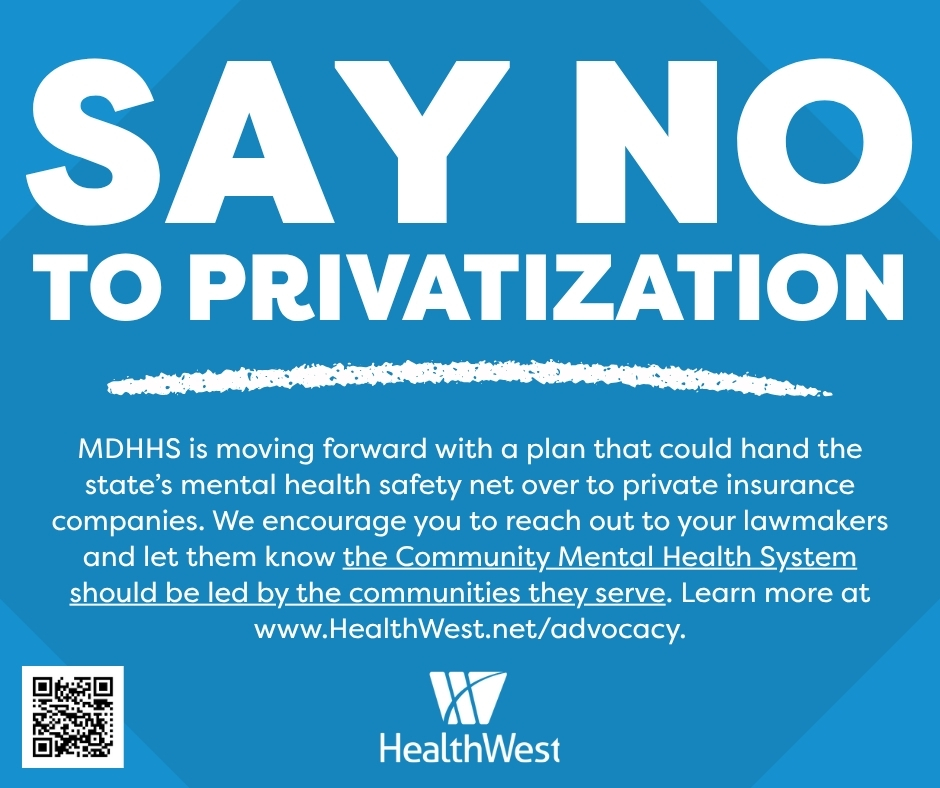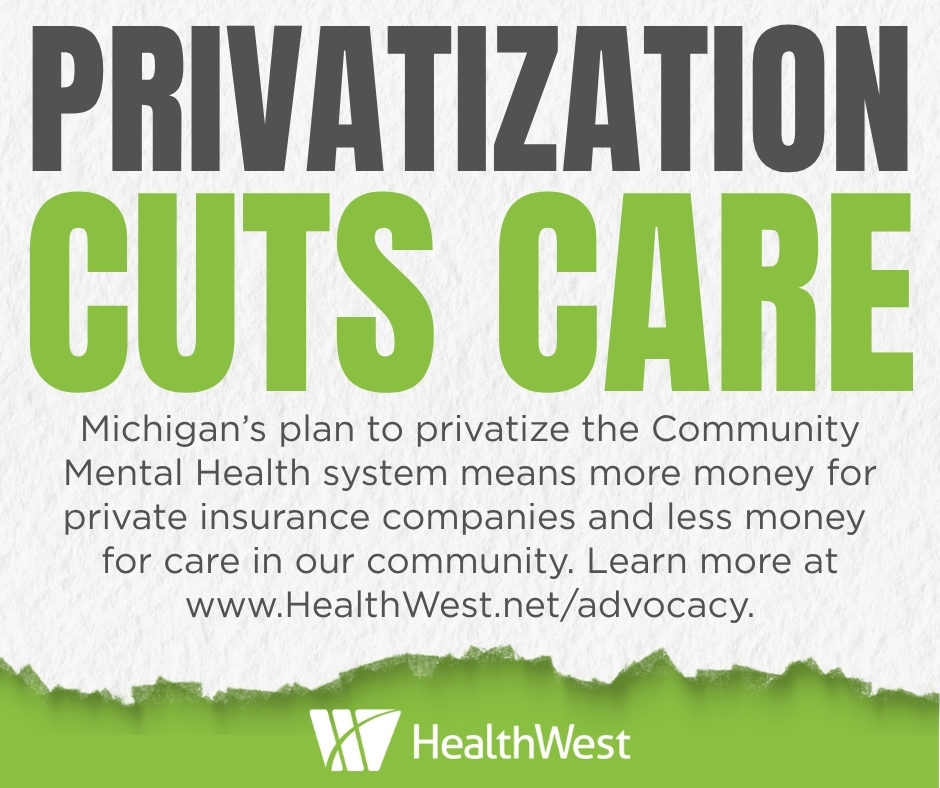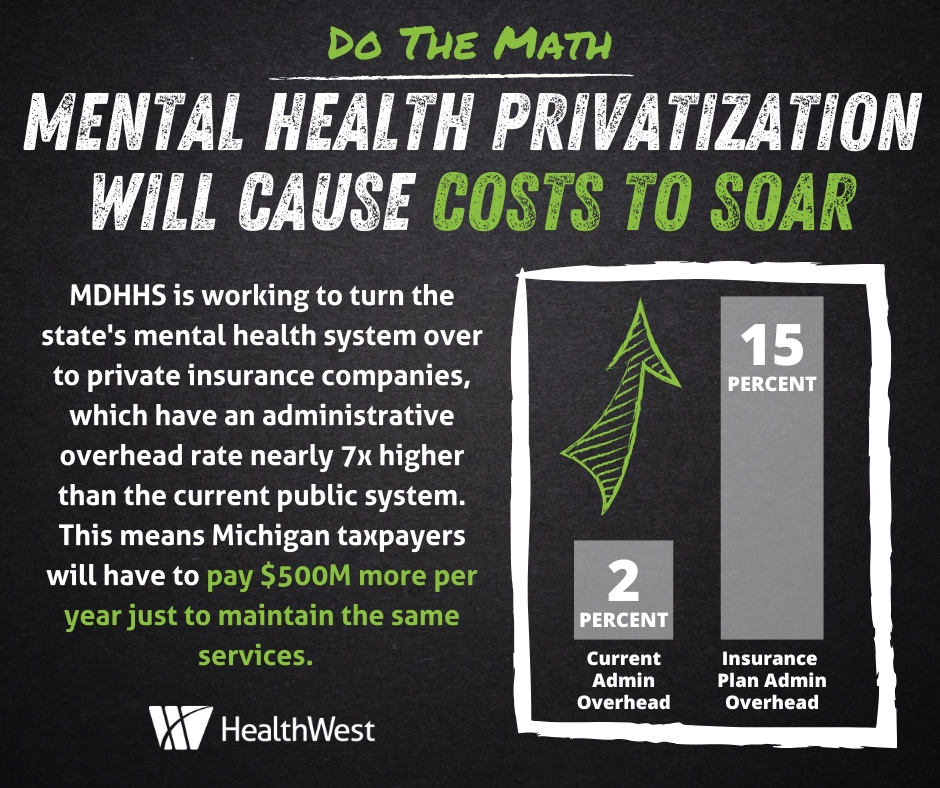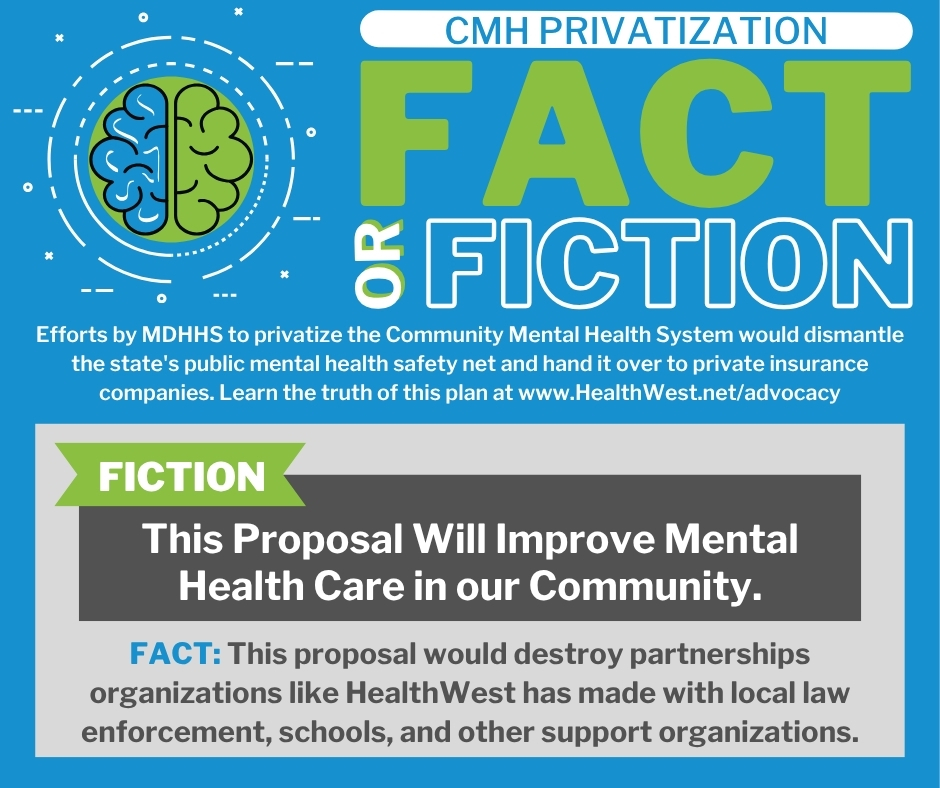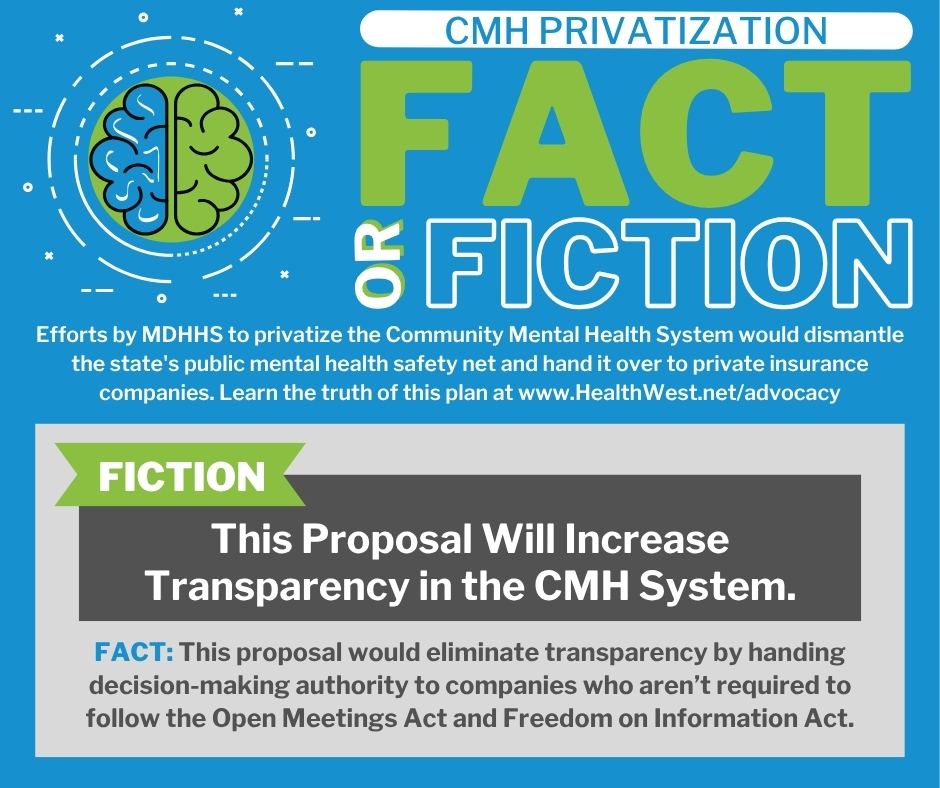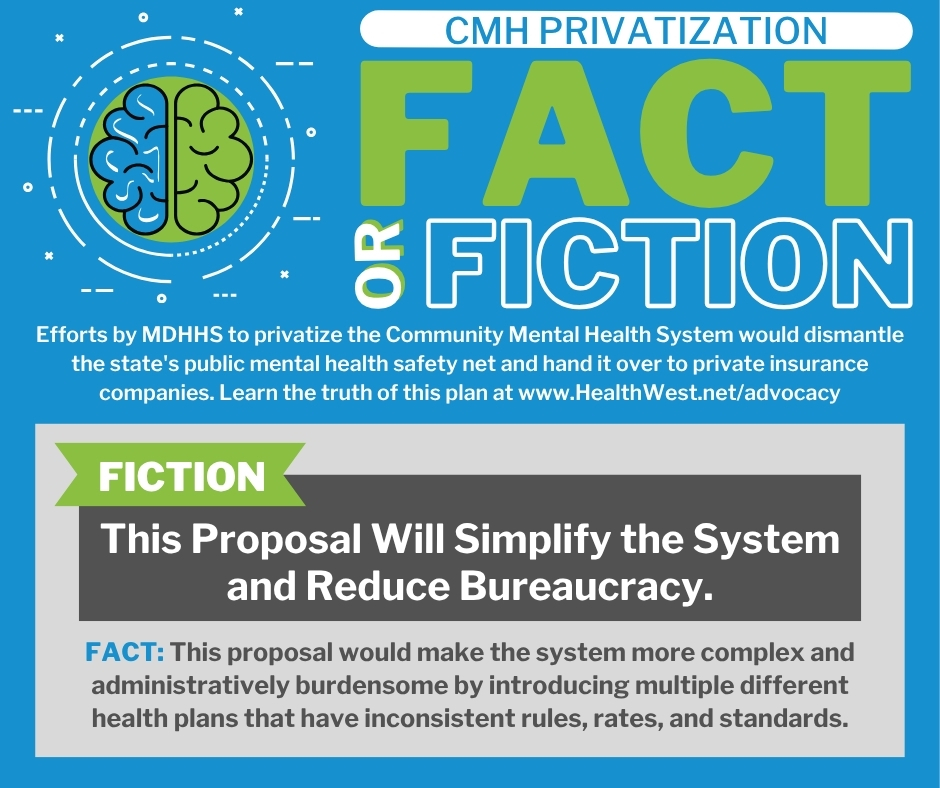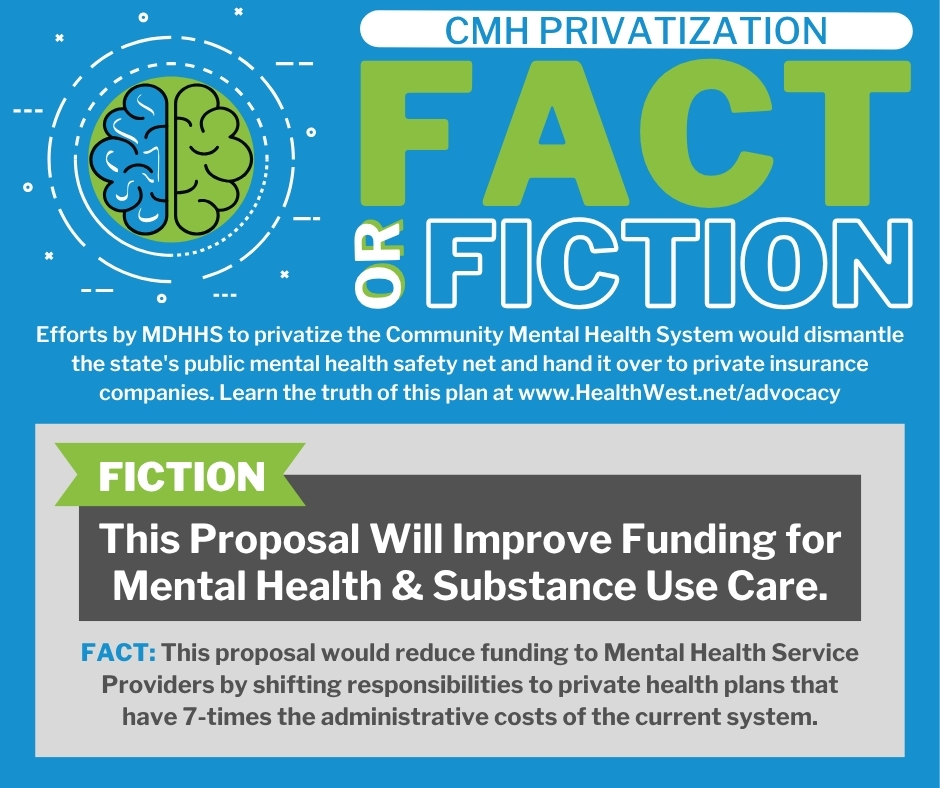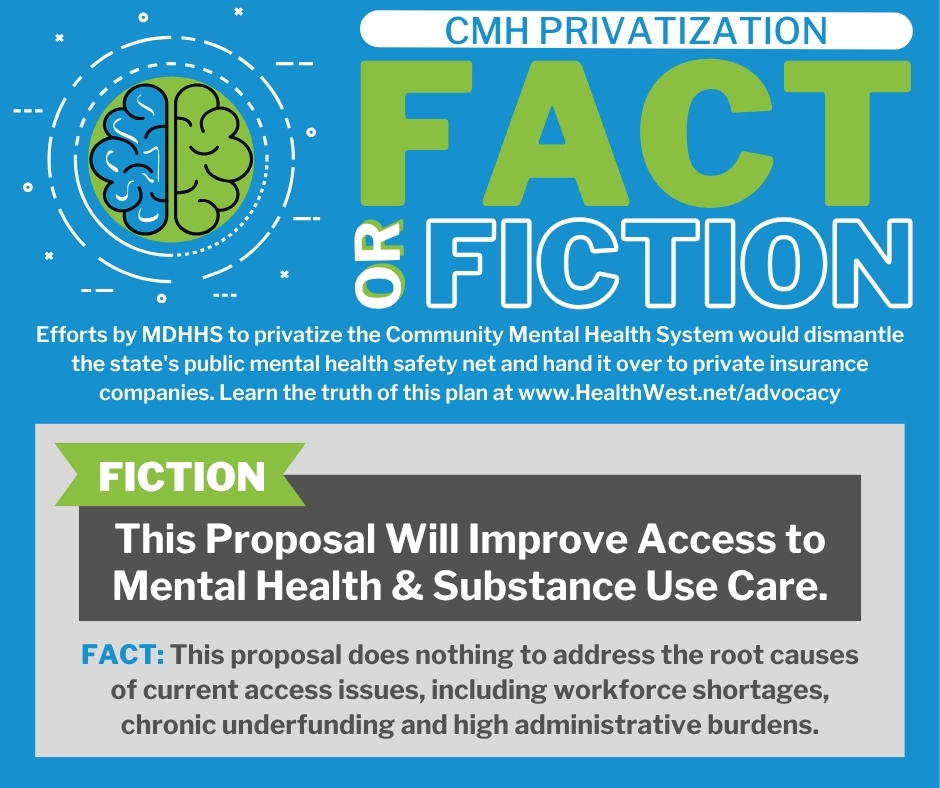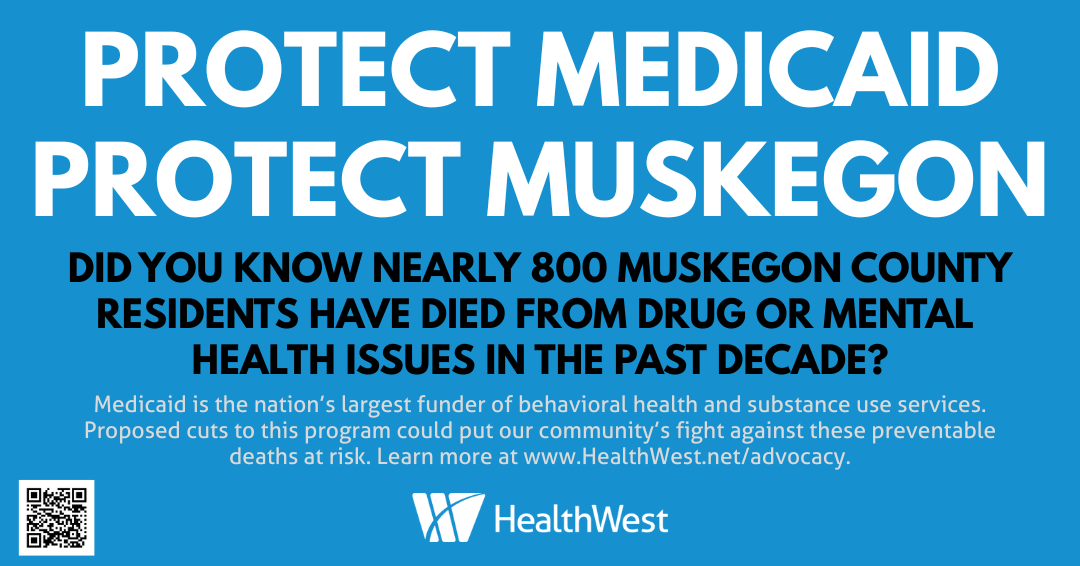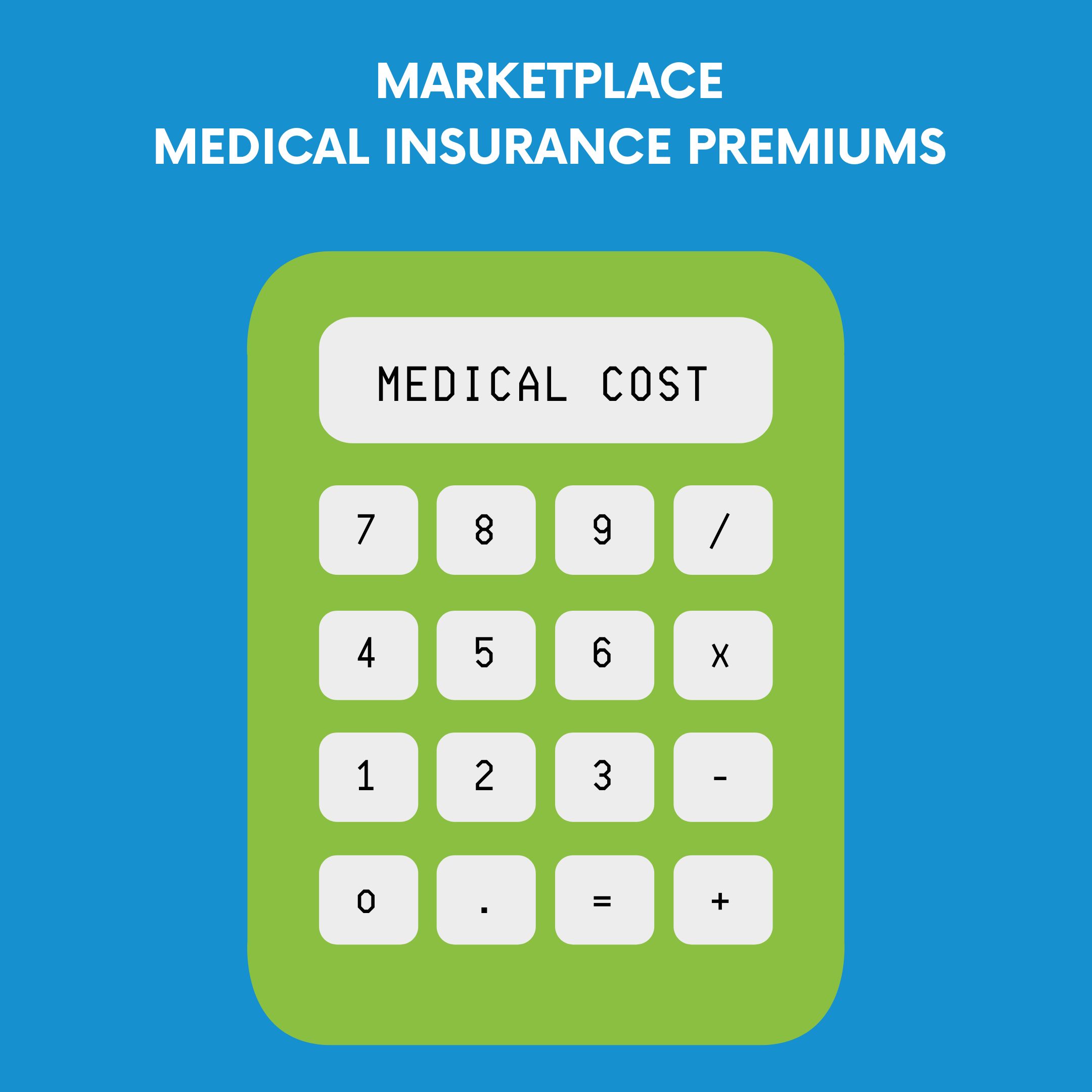Speak Up For Mental Health!
Michigan's behavioral health safety net is currently facing multiple threats that could lead to reduced services for the most-vulnerable members of the Muskegon County Community.
These cuts include federal proposals to slash Medicaid funding, as well as local efforts by the Michigan Department of Health and Human Services to hand the state's public behavioral health safety net over to private insurance companies.
System Privatization
MDHHS recently issued a press release and posted on its Specialty Behavioral Services webpage information regarding a proposed Prepaid Inpatient Health Plan procurement process. These documents underscore the fact that this procurement plan would privatize the state’s behavioral health management care organizations and the roles currently played by the state’s Community Mental Health Service Providers, such as HealthWest.
HealthWest strongly supports efforts to improve the quality, access, and accountability of behavioral health services in Michigan. However, the proposed changes by MDHHS represent a fundamental and alarming departure from the state’s longstanding and effective public mental health structure.
This proposal would:
- Severely jeopardize the care that hundreds of thousands of Michiganders depend upon by resulting in an immediate $500 million cut in funds available to provide mental health care. These reductions would come as the result of the administrative overhead of private plans health plans, at 15%, compared with the 2% overhead of the state’s PIHPs.
- Destroy the longstanding (60 year) partnership between the State of Michigan and the local Community Mental Health and publicly managed Substance Use Disorder system – the bedrock of the innovative and collaborative work that has made Michigan’s public mental health system one of the best in the country.
- Destroy the community partnerships that the state’s CMHs have with local law enforcement, schools, courts, homeless services providers.
- Fail to address the root causes of existing access issues—namely, workforce shortages, underfunding, and administrative burdens.
- Eliminate system transparency currently guaranteed by law. Current public entities are subject to the Michigan Open Meetings Act and Freedom of Information Act, ensuring a high degree of transparency. Private health plans are not bound by these requirements, leaving critical decisions about public funds and services outside the public eye.
- Introduce multiple layers of complexity making the system more complex and administratively burdensome. It allows multiple private plans per region, creating inconsistent rules, standards, and rates; while moving the financing of the community mental health system back to a fee-for-services system.
Take Action on Privatization
We encourage everyone to reach out to their state lawmakers and tell them how system privatization would affect their lives. Don't know what to say? Visit the Community Mental Health Association of Michigan's website to find an action alert that can help you send a message directly to your elected officials.
You are also free to share the materials and social media graphics below to help raise awareness about this damaging proposal.
Potential Medicaid Cuts
More than 2.6 million Michiganders, including nearly 55,000 Muskegon County residents, receive healthcare services through Medicaid. Medicaid is a program funded jointly by the state and federal government. Of the program's annual $27.8 billion budget, roughly $19 billion comes from the federal government.
Recently, the Michigan Department of Health & Human Services released a report, Executive Directive 2025-3, reviewing the impact of the proposed federal cuts.
The report concluded that these proposals, if enacted, could lead to the loss of health coverage for tens of thousands Michiganders, reduced access to care for everyone in Michigan, increased financial burdens on the state's hospitals and small businesses, significant strain on the state's budget, and undue hardship for Michiganders with the greatest needs. Read the full report here.
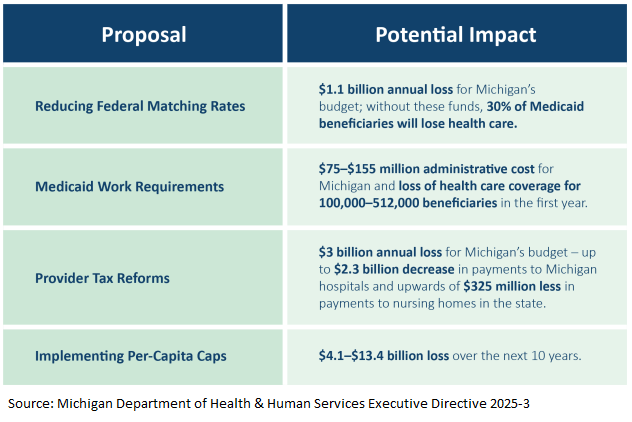
The HealthWest Difference
Did you know that nearly 1 in every 23 Muskegon County residents receive services at HealthWest? That's more than 7,500 people every year! The data shows that not only are Muskegon County residents happy with the services they are receiving at HealthWest, but these services are making a real difference in their lives.
Nearly 80 percent of HealthWest consumers recently surveyed agreed they are able to more effectively deal with life's daily problems and more than 89 percent agreed they would recommend HealthWest to a friend or family member. More than 90% of HealthWest's annual funding comes from Medicaid. Cuts to this program could put the vital work HealthWest and our provider network does for our community at risk.
Take Action on Medicaid
We encourage everyone to reach out to their lawmakers and tell them how cuts to Medicaid would impact their lives. Don't know your Congressional representatives? Look them up by clicking here. You can also use the buttons below to connect with national advocacy efforts that will help you craft a message to your lawmaker and send it on your behalf.
You are also free to share the videos and social media graphics below to help raise awareness about these potentially devastating cuts.
Medicaid Advocacy Resources
Important Dates
The "Big Beautiful Bill" has passed. Now what? Here are some important dates:
- September 30, 2025—the $7,500 tax credit for electric vehicles expires.
Likely by October 1, 2025 (or earlier)—new work requirements for people 54-64 and parents with kids 14 and older. - November 1, 2025—Open Enrollment begins. If you’re shopping for a health care plan on the marketplace, this is when you’ll start seeing higher premiums for plans that start January.
- Beginning no later than January 1, 2027—individuals between 19 and 64, including parents with kids ages 14 and up, will have to prove 20 hours of work, school, job training, or other such activities a week to qualify for healthcare. You should be watching MDHHS very closely for updates on these requirements. You will need to recertify eligibility at least every 6 months.
- January 1, 2026—reimbursements and tax credits for residential clean energy will be fully phased out.
- Beginning October 1, 2027—Bridge Card benefits cuts may occur regardless of work requirements.
- January 1, 2028—federal government investments in large-scale solar and wind projects will be fully phased out. Projects must either start construction by July 4, 2026 or start producing electricity by December 31, 2027, to qualify at all.
- January 1, 2028—Affordable Care Act plans effectively stop auto-renewing. Starting in 2028, you will have to start affirmatively re-enrolling every year to keep your healthcare.
- October 2028— If you are on Medicaid, you'll start seeing higher copays for services. Instead of $0 or $1 or $3, you’ll see up to $35 copays for most services.

